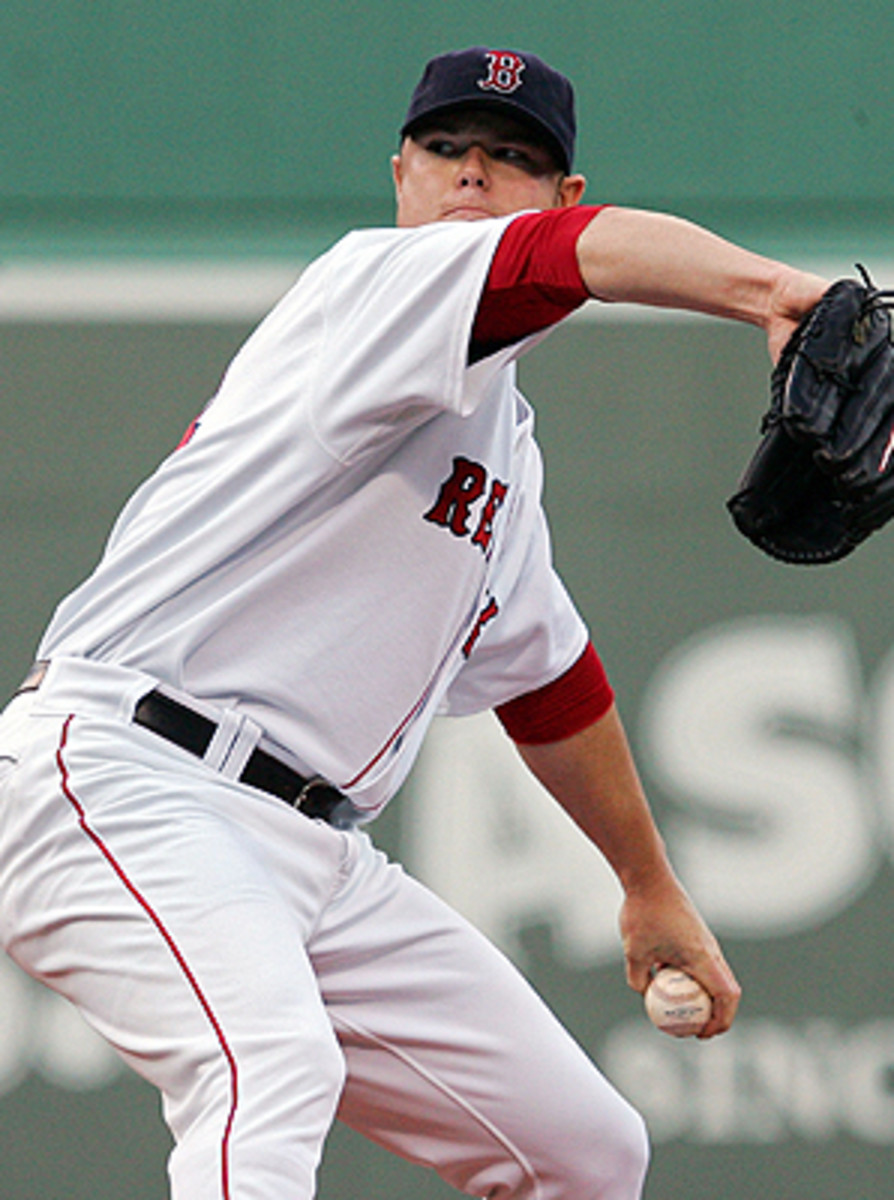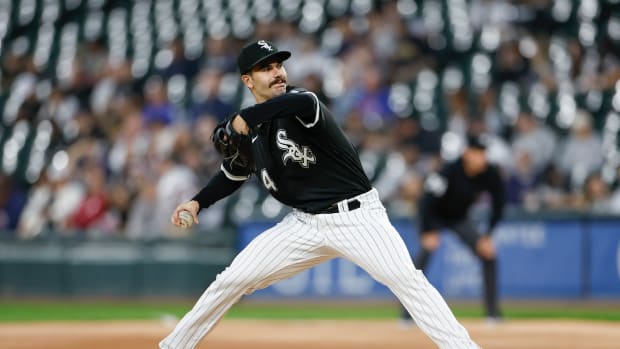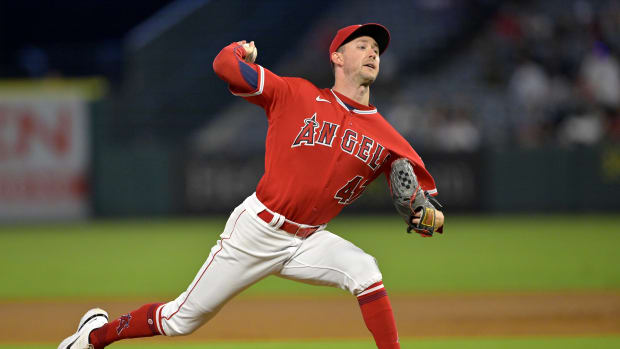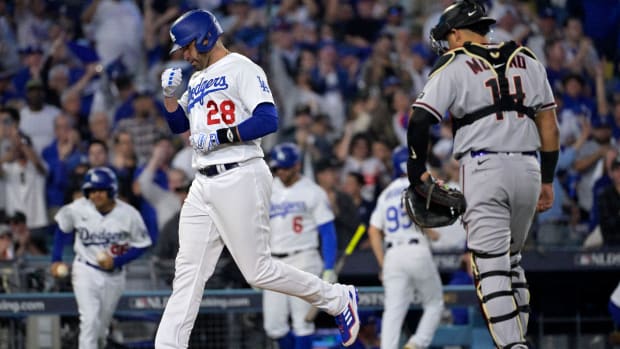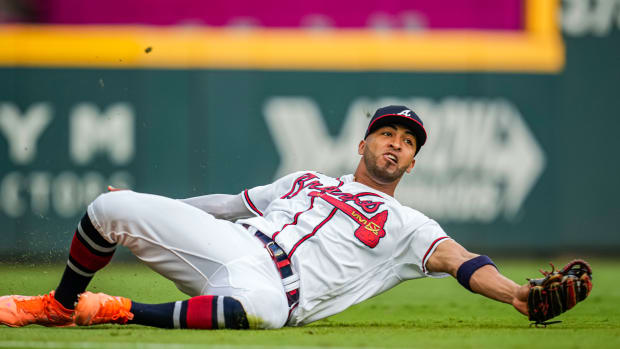ALCS Game 7 preview
Breaking down tonight's American League Championship Series matchup. All statistics for starting pitchers are for this postseason only.
Series: ALCS, Game 7
Time: 8:07 p.m. EST
TV: TBS
Starters:Jon Lester (1-1, 1.83 ERA) vs. Matt Garza (1-1, 4.50)
The Red Sox haven't lost an ALCS game in which they've faced elimination since Aaron Boone homered off Tim Wakefield in Game 7 of the 2003 ALCS. The next year, they exacted revenge on the Yankees by becoming the first baseball team to come back from a 3-0 deficit in a postseason series. Last year, they came back from a 3-1 deficit to beat the Indians in the ALCS. Now, they've rallied from a 3-1 deficit in this year's ALCS to force tonight's Game 7. That's nine straight wins while facing elimination in the ALCS. Tonight the Sox could very well make it 10.
Since 1925, 13 major league teams have jumped out to 3-1 leads in a best-of-seven playoff series only to lose Games 5 and 6. Just three of those 13 held on to win Game 7. The Rays are now the 14th team to fit that description, and they're hoping to become just the fourth team to salvage their series following the 1967 Cardinals, the 1972 Oakland A's -- both of whom did so in the World Series, the Cardinals with Bob Gibson pitching Game 7 -- and the 1992 Braves, who lost Games 5 and 6 of the NLCS to the Pirates by a combined 15 runs before winning Game 7 on FranciscoCabrera's series-winning single in the bottom of the ninth.
Matt Garza is no Bob Gibson, but the Rays do bear a slight resemblance to both the 1972 A's and 1992 Braves, both of whom were young teams who would win their respective divisions for years to come. The Braves even went worst-to-first, like the Rays did this year. The key difference was that the Braves accomplished that feat in 1991, the year before surviving that seven-game NLCS against Pittsburgh. Similarly, CharlieFinley's dynastic A's made their first postseason appearance in 1971, the year before they survived a near-comeback by the budding Big Red Machine to win Game 7 and their first world championship in 42 years. By comparison, the Rays are postseason rookies. Of the 25 men on their active roster only Cliff Floyd, Jason Bartlett, and a quartet of relievers (Grant Balfour, Dan Wheeler, Chad Bradford and Trever Miller) had ever seen playoff action before this year.
Ironically, the Rays lost Game 5 in large part because two of those relievers, Balfour and Wheeler, couldn't protect a 7-0 lead, and because their manager, who won a World Series as the Angels' bench coach in 2002, didn't act quickly enough to get Balfour and Wheeler out of the game. In last night's Game 6, however, the Rays' immaturity began to show. The Rays took an early lead last night on B.J.Upton's seventh home run of the postseason and, after falling behind 2-1, tied the game back up when Jason Bartlett hit just his second home run of the year, but when the Red Sox responded to Bartlett's tater with a pair of runs in the top of the sixth, the Rays hitters started pressing. After Hideki Okajima retired the heart of the Rays order in the bottom of the sixth, five of the seven Rays batters to come to the plate in the seventh and eighth innings either popped up or flied out in a failed attempt to hit a heroic home run. In the Rays' final three ups, only Bartlett had what could be considered a good at-bat as he worked Justin Masterson for six pitches before being hit by the seventh leading off the eighth. Then again, it was Bartlett's throwing error on a routine grounder that gave Boston their insurance run in the top of the sixth. The Rays were tight. For the first time since Game 1 of this series, in which they were shut out, they were feeling the pressure of the postseason.
If the Rays were tight last night while down by just two runs, but still up one game in the series, they're going to be wound like a drum in tonight's game now that they're suddenly facing elimination themselves. The Rays could very well be dead men walking tonight. Their best hope is defibrillation via a significant early lead, though even that may not be enough as the emotional memories of Game 5's bullpen collapse start to kick in.
Before this series began, I figured that the Red Sox would win it if they could get the ball to Jon Lester in Game 7. I still think the Red Sox have the upper hand tonight, but that has more to do with the Rays collapse, than with Lester. Lester has now thrown 67 more innings this year than he had a year ago between the minors, majors and postseason. The general rule of thumb is that young pitchers shouldn't go much more than 30 innings past their previous year's high, and Lester appeared to show signs of his fatigue in Game 3 as he gave up four runs in 5 2/3 innings. A closer look at that start tells a different story. Lester struck out seven men against just two walks in those 5 2/3 frames, and in the first, second, fourth, fifth, and sixth innings combined, he allowed just one unearned run. All of the earned runs Lester allowed in Game 3 came in the third inning on home runs by Upton and Evan Longoria, the latter sandwiched between strikeouts of Carlos Peña and Carl Crawford. Lester allowed just two line drives all game, most of his balls in play were grounders, and he threw a solid 63 percent of his pitches for strikes. Certainly his performance paled against his 14 shutout innings against the Angels in the ALDS, but in retrospect, he really made just two mistakes in an otherwise sub-par (by his own standards), but solid outing.
Still, just because Lester was able to limit the damage to that one bad inning, didn't mean the damage didn't happen. Lester dominated the Rays in three regular season starts this year (3-0, 0.90 ERA), but all three of those starts came at Fenway Park, where his ERA was 1.6 runs lower than it was on the road. Lester hasn't pitched at the Trop since 2007, but he posted a 6.75 ERA there last year, and has a 6.99 career ERA in seven starts on artificial turf. Given that the Twins, Blue Jays, and pre-2008 Rays have hardly been the most fearsome hitting teams in the league, that seems significant, as does Lester's 7.52 ERA in five career starts indoors (though there's significant overlap between that figure and his turf mark, and the latter is inflated by his bad start in the Tokyo Dome back on March 26). By comparison, Matt Garza went 7-3 with a 2.89 ERA in the Trop this year after pitching his home games in the Metrodome as a part-time Twin over the last two seasons.
Garza held the Sox to one run over six innings in his win over Lester in Game 3, but like Lester's performance in that game, a closer look gives a different impression. Garza was inefficient, needing 116 pitches to get through six frames, and that inefficiency was due to a well-concealed ineffectiveness. Only 54 percent of Garza's pitches in Game 3 were strikes, and only four of them caused a Boston batter to swing and miss. Garza had similarly mixed results pitching against the Sox at home during the regular season. He limited them to one unearned run over seven innings back on June 1, but in his other two home starts against Boston, he gave up six runs in just 9 2/3 innings. On Sept. 17, he gave up two home runs to David Ortiz at the Trop and made a batter swing and miss just twice. Perhaps most importantly, Garza has a reputation for being emotional, which could make him particularly ill-suited to start the most high-pressure game in Rays history.
Joe Maddon was able to shake his team out of its Game 1 stupor, resulting in the offense's 38-run outburst over the following four games and the 3-1 series lead that the Red Sox have made disappear over the last two games. If he can do it again, the Rays just may salvage the series. If not, they'll have lost tonight's Game 7 before they even step foot on the field.






























